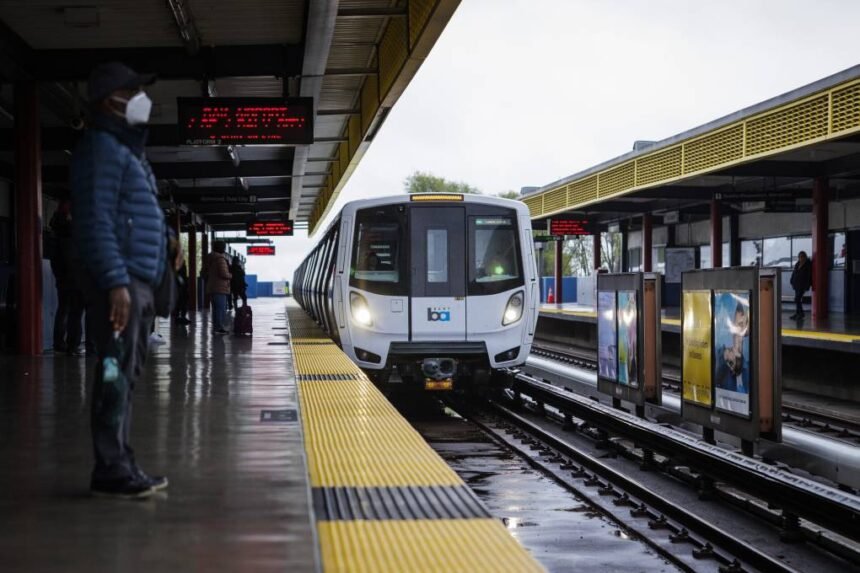“It’s essential that this loan happen,” Wiener and Arreguín wrote in the joint statement Saturday. “The state needs to step up and ensure we don’t see debilitating service cuts at BART, Muni, Caltrain, AC Transit, and other operators.”
The senators have been working to put a regional funding ballot measure before voters during the November 2026 election. But even if approved, that funding would not begin until 2027 — the state loan was meant to help bridge that gap.
In the Saturday afternoon interview, Wiener declined to comment on the specifics of his conversations with state officials.
“There’s not a specific sticking point, this is about just having the will to get it done this coming week.” Wiener said.
In a statement, a spokesperson for the governor’s office said that the original agreement specified that the loans could only be made if lawmakers passed legislation outlining their terms.
“The administration supports our local transit agencies and remains open to reviewing proposals as we finalize the remaining budget items,” the spokesperson wrote.
Without the loan, BART officials say they could be forced to cut services in anticipation of a $350 million to $400 million annual deficit beginning in the 2027 fiscal year.
“Were we not able to secure the $750 million dollar temporary loan, we could see two of BART’s five lines cancelled. We could see stations closed,” BART board of directors member Edward Wright told KQED Friday. “We could see a dramatic reduction in our service hours and a dramatic reduction in service frequency.”
Wiener and Arreguín pointed to a systemwide BART outage Friday morning as an example of what residents might expect from a future with reduced services.
“Even on a Friday, when fewer people commute to the office, BART service shutting down meant our roads were choked with bumper to bumper traffic throughout the day, children and working people lost access to school and work, and our air got more polluted,” the senators said.
BART’s current financial troubles mirror those of other local agencies. Officials say emergency funding implemented in response to the COVID-19 pandemic will run out next year, but ridership rates never fully recovered as many employers embraced remote work.
For some transit agency officials, the larger concern is not the immediate potential cuts, but rather the cascading impacts down the road.
“The real fear is, aside from the degree to which that will provide an incredibly bad experience for people who rely on transit, it also could trigger what’s been referred to as a doom loop,” Wright said. “The worse our service becomes, the less people will want to ride it. The less people ride it, the less we’re gaining in fare revenue and the bigger our deficit grows.”







